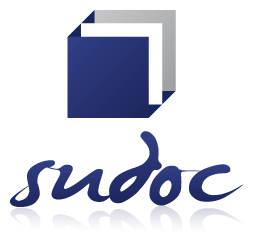Investigating the Effect of Resveratrol on The Survival Rate of 4T1 Breast Cancer Cells By MTT Method
DOI:
https://doi.org/10.63053/ijhes.87Keywords:
Resveratrol, 4T1 Cancer Cell, MTTAbstract
Cancer is known as an incurable, deadly and deadly disease with pain and disability. During recent decades, changes in people's lifestyles have increased the incidence and prevalence of breast cancer worldwide. With the wide spread of this disease, research has also increased on this issue. Resveratrol is known as a natural polyphenol found in red grapes and some other foods, and with its important anti-cancer properties, it can be effective in reducing the risk of breast cancer and its treatment. Research has shown that resveratrol can have positive effects on breast cancer by reducing DNA methylation, reducing cell proliferation, and reducing cancer growth factors. In this research, resveratrol has been used against 4T1 cancer cells, which were treated with different concentrations of resveratrol after cultivation in 96-well plates and measured by the MTT method. The obtained results showed that resveratrol in all concentrations and at different times significantly reduces the survival of 4T1 cancer cells. By increasing the concentration and treatment time, the decrease in cell viability increases. This indicates strong, dose- and time-dependent effects of resveratrol on breast cancer cells.
References
Lima, S.M., R.D. Kehm, and M.B. Terry, Global breast cancer incidence and mortality trends by region, age groups, and fertility patterns. EClinicalMedicine, 2021. 38. DOI: https://doi.org/10.1016/j.eclinm.2021.100985
Lei, S., et al., Global patterns of breast cancer incidence and mortality: A population‐based cancer registry data analysis from 2000 to 2020. Cancer Communications, 2021. 41(11): p. 1183-1194. DOI: https://doi.org/10.1002/cac2.12207
Franceschi, B. and M.R. Torqueti, Evaluation of the effect of resveratrol isolated and in combination with tamoxifen on the viability of breast cancer cells. Journal of International Society of Antioxidants in Nutrition & Health, 2016. 3(4).
Stepanenko, A. and V. Dmitrenko, Pitfalls of the MTT assay: Direct and off-target effects of inhibitors can result in over/underestimation of cell viability. Gene, 2015. 574(2): p. 193-203. DOI: https://doi.org/10.1016/j.gene.2015.08.009
Jin, X., et al., Resveratrol promotes sensitization to Doxorubicin by inhibiting epithelial‐mesenchymal transition and modulating SIRT1/β‐catenin signaling pathway in breast cancer. Cancer medicine, 2019. 8(3): p. 1246-1257. DOI: https://doi.org/10.1002/cam4.1993
Levi, F., et al., Resveratrol and breast cancer risk. European journal of cancer prevention, 2005. 14(2): p. 139-142. DOI: https://doi.org/10.1097/00008469-200504000-00009
Zhu, W., et al., Trans-resveratrol alters mammary promoter hypermethylation in women at increased risk for breast cancer. Nutrition and cancer, 2012. 64(3): p. 393-400. DOI: https://doi.org/10.1080/01635581.2012.654926
Qin, W., et al., Abstract A96: Trans-resveratrol decreases breast proliferation and alters mammary promoter hypermethylation in women at increased risk for breast cancer. Cancer Prevention Research, 2010. 3(12_Supplement): p. A96-A96. DOI: https://doi.org/10.1158/1940-6207.PREV-10-A96
Brown, V.A., et al., Repeat dose study of the cancer chemopreventive agent resveratrol in healthy volunteers: safety, pharmacokinetics, and effect on the insulin-like growth factor axis. Cancer research, 2010. 70(22): p. 9003-9011. DOI: https://doi.org/10.1158/0008-5472.CAN-10-2364
Franco, R.D., et al., Skin toxicity from external beam radiation therapy in breast cancer patients: protective effects of Resveratrol, Lycopene, Vitamin C and anthocianin (Ixor®). Radiation oncology, 2012. 7: p. 1-6. DOI: https://doi.org/10.1186/1748-717X-7-12
Howells, L.M., et al., Phase I randomized, double-blind pilot study of micronized resveratrol (SRT501) in patients with hepatic metastases—Safety, pharmacokinetics, and pharmacodynamics. Cancer prevention research, 2011. 4(9): p. 1419-1425. DOI: https://doi.org/10.1158/1940-6207.CAPR-11-0148
Chow, H.S., et al., Resveratrol modulates drug-and carcinogen-metabolizing enzymes in a healthy volunteer study. Cancer prevention research, 2010. 3(9): p. 1168-1175. DOI: https://doi.org/10.1158/1940-6207.CAPR-09-0155
Patel, K.R., et al., Clinical pharmacology of resveratrol and its metabolites in colorectal cancer patients. Cancer research, 2010. 70(19): p. 7392-7399. DOI: https://doi.org/10.1158/0008-5472.CAN-10-2027
MORABIA, A., REPRODUCTION FACTORS AND INCIDENCE OF BREAST CANCER. 2000.
Boussiba, S., Carotenogenesis in the green alga Haematococcus pluvialis: cellular physiology and stress response. Physiologia Plantarum, 2000. 108(2): p. 111-117. DOI: https://doi.org/10.1034/j.1399-3054.2000.108002111.x
Kashfi, F., A. Nikoofar, and R. Mohammadi, Fertility risk factors causing breast cancer. Journal of Reproduction & Infertility, 2002. 3(1).
Madigan, M.P., et al., Proportion of breast cancer cases in the United States explained by well-established risk factors. JNCI: Journal of the National Cancer Institute, 1995. 87(22): p. 1681-1685. DOI: https://doi.org/10.1093/jnci/87.22.1681
Rocha, A., et al., Pomegranate juice and specific components inhibit cell and molecular processes critical for metastasis of breast cancer. Breast cancer research and treatment, 2012. 136: p. 647-658. DOI: https://doi.org/10.1007/s10549-012-2264-5
Downloads
Published
How to Cite
Issue
Section
License
Copyright (c) 2024 Authors

This work is licensed under a Creative Commons Attribution 4.0 International License.
The journal is licensed under a Attribution 4.0 International (CC BY 4.0).
You are free to:
- Share — copy and redistribute the material in any medium or format for any purpose, even commercially.
- Adapt — remix, transform, and build upon the material for any purpose, even commercially.
- The licensor cannot revoke these freedoms as long as you follow the license terms.
Under the following terms:
- Attribution - You must give appropriate credit , provide a link to the license, and indicate if changes were made . You may do so in any reasonable manner, but not in any way that suggests the licensor endorses you or your use.
- No additional restrictions - You may not apply legal terms or technological measures that legally restrict others from doing anything the license permits.












